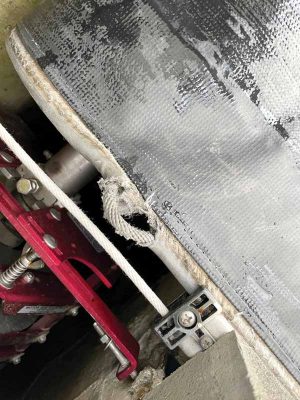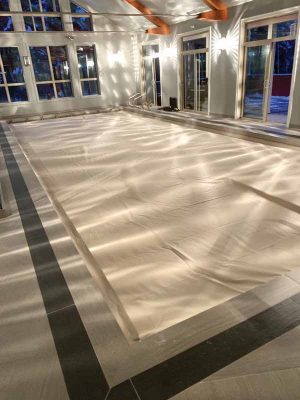
Many pool professionals are now also recommending and co-ordinating their pool openings alongside an automatic pool cover specialist for the upcoming season. In some instances, much like plumbers and HVAC specialists, automatic cover specialists even offer emergency repair services.
Mechanical and technical issues
Automatic pool cover specialists can inspect and diagnose both mechanical and electrical issues, and stock spare parts and tools, which are readily available in their trucks, allowing them to make repairs immediately.
Issues with bolts, rope tension, gears, and electrical connections in the motor require specialized work. Many of these elements are not easily visible but cannot be overlooked. Even the controller of the automatic pool cover is another potential component that could fail. This is yet another reason pool professionals should work with trained automatic cover specialists because they have the knowledge and experience on how to maintain and repair all automatic cover brands.
Prevention is key to reducing the risks of a failed automatic pool cover. If pool professionals hear “odd sounds” when opening or closing the cover to vacuum the pool interior and balance the water chemistry, they should alert the client and suggest they consult an automatic pool cover specialist.

Additional items for consideration
During regular service visits, pool professionals should perform a quick visual inspection to check for corrosion on the metal components of the automatic pool cover.
Corrosion, particularly on pools with salt generators, can occur on many different components—from grab rails and ladders to pumps and heaters. Newer automatic pool cover components are anodized or made from stainless steel to prevent wear, but older systems may not be protected. If white material is visible on components, an automatic cover specialist should be consulted to remove corrosion and inspect any parts to determine their integrity.
Cover specialists are also uniquely equipped with tools to open the cover housing and check for debris inside the area where the cover rolls up, which can cause interference with the vinyl fabric. Custom lids on these covers are often heavy and hard to access, but these specialists are trained and have the tools necessary to lift, inspect, and clean out these areas.






